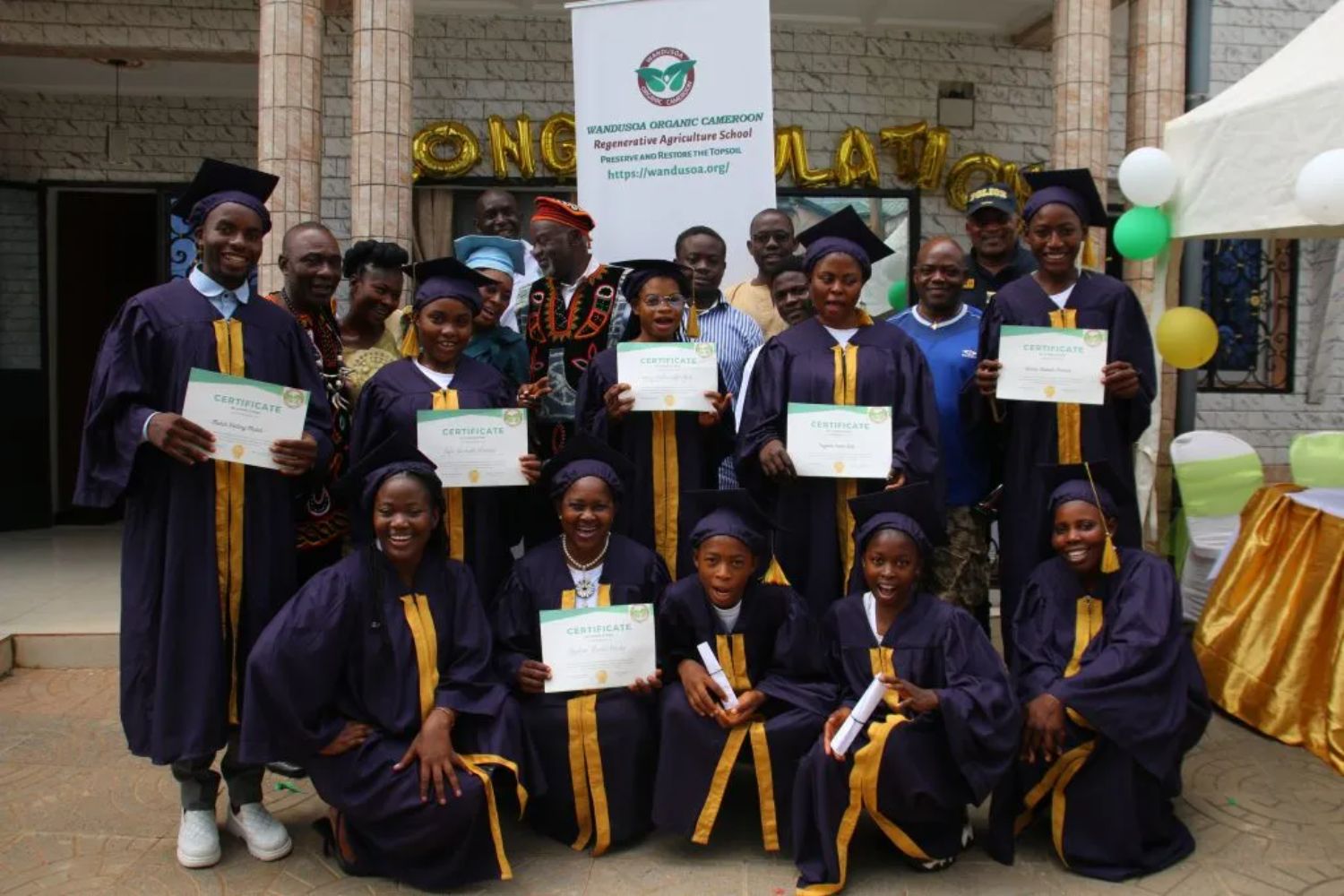Summary
This is a proposal to fund a nine-month pilot project in Ngoumou and Bankomo, Cameroon , supporting 20 marginalised youths (70% of them girls), including internally displaced persons—to train in regenerative agriculture and business skills.
Specifically this proposal will fund the scholarships of 5 internally displaced girls to complete the programmes 2025/26 cohort.
Through classroom lessons, hands-on farming, mentorship, and startup support, scholars will launch their own agro-enterprises while restoring 10 hectares of degraded land and improving food security for 5,000+ households.
This project is led by Kuta Cornelius, founder of the Wandusoa. For years, Kuta informally trained smallholder farmers and displaced youths in sustainable farming, driven by a simple conviction: healthy soil is the backbone of healthy communities.

But Kuta’s ambition extends further. With an ecological training centre under construction, Wandusoa is preparing to host its next cohort of students in October 2025. These 20 young people will not only learn to farm but also to run regenerative businesses, feeding their families, restoring the land, and spreading knowledge through their communities.
If we fund this pilot, we are backing Kuta’s leadership, providing scholarships for 5 young displaced girls (25% of the cohort) and a model that connects livelihoods with ecological restoration.
Why this matters
Degraded soil is undercutting food security and livelihoods across Cameroon. For displaced and low-income families, the stakes are immediate: unreliable harvests, rising food costs, and few pathways into dignified work. Women often carry the heaviest burden yet have the least access to tools, training, and finance.

What the project will change
For 20 young people, this project will be life-changing. Instead of seeing displacement, poverty, or lack of opportunity as the end of their story, they will gain tools, knowledge, and startup capital to grow something new.

For the wider community, these women become multipliers—restoring plots, modelling climate-smart practices, and sharing knowledge with neighbours. As graduates move into the three-month mentorship phase, they’ll develop viable plans to launch enterprises on Wandusoa-linked land, contributing to healthier soils, steadier harvests, and more resilient local food systems. Families will have greater access to affordable, nutritious food. Ten hectares of degraded land will be restored, improving biodiversity and climate resilience.
Over time, these 20 graduates will become local leaders, shifting practices, mindsets, and futures from extractive to regenerative.
Attachments
Please find the supportive attachments for your review here:
That's all!
Please cast your vote by Monday 29 Sept, and if you have any questions regarding the proposal you can reach out to the Kwanda team on team@kwanda.co
